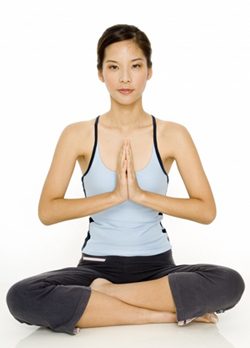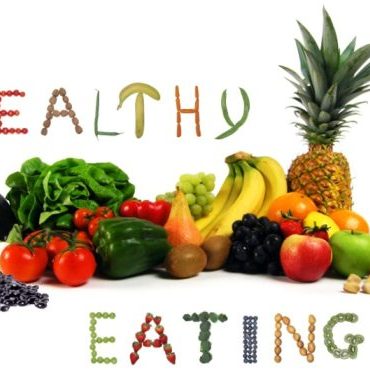 Our health guru weighs in on what to eat, what to avoid and how to be your healthiest self.
Our health guru weighs in on what to eat, what to avoid and how to be your healthiest self.
Can I substitute my yoga classes for a cardio workout?
For reference, cardio workout would is anything that raises your heart rate for an extended period of time, usually at least 20-30 minutes. It works all of the major muscle groups, and you should find yourself sweating and breathing hard during the most intense part of the workout. There are a couple of very athletic styles of yoga that are almost akin to gymnastics (that’s actually where some of their historic roots lie).
Real Ashtanga or a Power Vinyasa practices that are heavy in repeated sun salutations can elevate your heart rate to an aerobic level and burn around 500 calories per hour. A more restorative practice is just not the same cardio boost, but the slower practices keep me limber enough and strong enough to do the bigger/better/faster stuff. Yoga is great for your mind–as a stress reliever, meditation, and spirituality practice. Yoga is great for flexibility and stretching–something that most exercisers tend to skip over. YES, it burns calories (about 200 per hour). But is the calorie burn of an average yoga class comparable to something like running or aerobics class? Probably not.
It’s a great addition to a well-rounded exercise plan. Exercise is more than just burning calories–it’s a lifestyle. Trying to be active throughout your day in many ways, besides just running adds to calorie burn and adds to losing and maintaining a healthy weight. While yoga would be a good introduction to exercise (making the habit, getting active, sticking with it), it cannot solely provide you with everything you need. You still need some form of cardio/aerobics 3-5 days a week and you still should do strength training as well.
A friend does a lot of jogging outdoors (she is a fitness fanatic), but I prefer doing cardio, strength-training and yoga DVDs at home. My friend says that I am not really exercising because I am not building up my endurance. Are at home workouts inferior?
Not at all, provided you are exerting yourself and putting a lot of effort into your workouts. Many instructors have created extremely advanced DVDs and videos that can give you amazing fitness benefits; they vary in length and some are even an hour-and-a-half long. Your friend must be confusing at-home exercise videos with some exercise shows on television, which often cater to a more sedentary population. In reality, exercisers of all fitness levels can find workouts on video or DVD that challenge them. Although running burns plenty of calories and is a great way to stay fit, some people are more inspired by exercising with an instructor on a tape or DVD. You have a motivator right there talking to you. When you find an instructor whose personality meshes with yours, you really work hard. Plus, you get a more well-rounded fitness program – video and DVD offerings include step aerobics, cardio dance, pilates, yoga, and more.
I am 19 years old and I am 172 cm and weigh 71 kg, I want to lose another 10-15 kg to be the weight I dream of, would you be able to suggest anything to lose this excess fat I have?
A normal Body Mass Index (BMI) is between 20-25. Your BMI at the moment is 23.9. Your weight should not drop below 61kg – at this weight you will have a Body Mass Index of 20, lower than this is underweight, which is not healthy and therefore not recommended. In order to lose weight you must alter your lifestyle of eating and exercise. Increase your activity level on a daily basis – swim, walk, gym, dance or run. Enjoy your exercise so that it is easy to incorporate into your daily routine. Reduce the volume you are eating as you are consuming excess kilojoules, which has resulted in your weight gain. On my internet site (www.arlenesway.com.au) I produce an excellent menu program weekly, which will guide you to more balanced eating habits.
Can you tell me which is lowest in fat 100 gram of low fat cottage cheese or 100 grams of low fat smooth ricotta cheese?
On average a low fat cottage cheese has 2.5 grams of fat per 100grams whereas a low fat smooth ricotta cheese has approximately 9 grams of fat per 100grams.
When I am at work, I just eat even when I am not hungry, I think maybe because I get bored at work. I am not sure how can I stop this? I am not sure how can I stop this? Also I’ve been going to the gym for almost 1 year now three times a week and I don’t feel that my body has changed, what am I doing wrong, I mainly eat healthy as well. Please help.
It appears that you are “good” some of the time, and “bad” at other times. Eating and exercise are a lifestyle – stop dieting! You should be eating because you are hungry, not because you are bored. Balancing your energy intake and energy expenditure determines whether you gain or lose weight. Try and increase your exercise routine to four times a week. Eat small portions – until you are comfortable never till you are full. Never pick – whatever you eat goes on a plate and you are sitting down to eat it. Try and develop a routine of meals and snacks, which together with your exercise will lead to the desired change in your body shape.
I am the proud mother of a beautiful 4-month-old girl but need some help. Whilst I was pregnant I put on around 20 kg and I am having an extremely hard time shedding the extra kilos (around 10kg). I have never been one that has needed to follow a “diet” seeming to be naturally tall, thin and active but I am in need of some help. I had the attitude while I was pregnant – the weight will fall off after I have had the baby (not so). I am looking for a weight loss program that will help me to lose the weight and is safe to follow while I am breastfeeding. Please help…
The easiest time to lose weight is while you are breastfeeding. Are you exercising? Are you eating regular meals? Are your meals organised? Mothers often tend to snack throughout the day as a lot of time is spent at home, meeting other mothers for tea, preparing food and nurturing the baby. Fatigue can lead to overeating. You do not need a “diet”; you need to consume balanced meals with fruit or yoghurt as snacks. Drinking adequate fluids is imperative while you are breastfeeding. Follow the menu plan on my website, but add an additional yoghurt or glass of milk to the daily allowance to ensure your calcium intake is adequate.
I hear that eating a lot of protein is important for building bone, but I also hear that a high protein diet can cause bone loss. Which is it?
While a high-protein diet is commonly believed to disrupt calcium balance, potentially causing bone loss, new research indicates that many women may need to get significantly more protein to build optimal bone mass. When researchers conducted a four-year study on 855 older (age 68 plus) men and women, what they found was dramatic. People with the lowest protein diets lost the most bone mass – 4 per cent in four years – while those who ate the most protein lost the least bone – less than 1.5 per cent. Researcher Katherine Tucker, associate professor of nutritional epidemiology at Tufts University in Boston, said these findings would apply to women of all ages.
When you are younger, you need protein to build bone, and after the age of 30 you need protein to keep it from being lost. Keeping your bones strong is a lifelong effort. Another recent study found that protein increases bone mass only if you get sufficient Vitamin D as well. Both studies found that getting about 20 percent of calories from protein protected bone best. Interestingly, the people who lost the most bone mass were getting the recommended dietary allowance for protein – 0.8grams per kilogram of body weight. One third of women don’t even get this much, let alone the amount necessary to maximise bone mass.
Women, who are especially vulnerable to osteoporosis, including thin women and dieters, eat notoriously little protein. Because this research is still new, researchers aren’t yet ready to increase requirements. In any event, you should never get more than 35 percent of your calories from protein.

